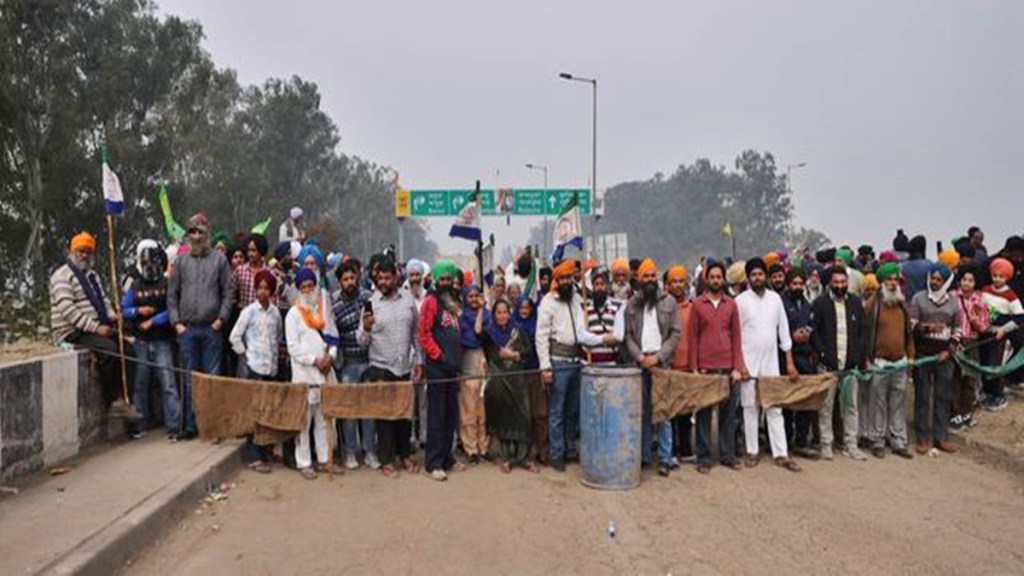Post the fourth round of talks, the ball is now in the farmers’ court as the Centre proposed the government’s intention to purchase pulses, maize, and cotton crops from farmers at minimum support prices (MSP) for five years through contractual agreements. Following this development, the ‘Delhi Chalo’ march was put on hold but may resume on February 21 if issues are not resolved by Tuesday, as reported by PTI.
This development comes after a meeting with ministers in Chandigarh on Sunday, where farmer leaders announced their plan to discuss the government’s proposal in their respective forums on Monday and Tuesday. Subsequently, they will collectively decide on the next steps to be taken.
The proposal was presented by a panel that included Piyush Goyal, the Minister of Commerce and Industry, along with Agriculture and Farmer Welfare Minister Arjun Munda, and Minister of State for Home Affairs Nityanand Rai. The meeting also witnessed the presence of Punjab Chief Minister Bhagwant Mann. The demands discussed included securing a legal guarantee for the minimum support price for crops. Notably, thousands of protesting farmers have been stationed at the Punjab-Haryana borders since February 13.
Government’s proposal:
One solution proposed by the Centre is that the government agencies would make agreements with farmers to buy their pulses, maize, and cotton crops at a set minimum support price for the next five years. This new approach is meant to address the concerns of the protesting farmers. The farmers’ leaders are expected to decide on this proposal after further discussions in the coming days.
After a four-hour-long meeting, Goyal described the idea as “innovative” and “out-of-the-box,” emerging during the discussions. The farmer leaders are set to decide on the government’s proposal by Tuesday.
Also Read:‘Govt working on schemes to benefit farmers’: PM Modi in Haryana amid farmer protests
Goyal mentioned, “Cooperative societies like the NCCF (National Cooperative Consumers Federation) and NAFED (National Agricultural Cooperative Marketing Federation of India) will enter into a contract with the farmers who grow ‘tur dal,’ ‘urad dal,’ ‘masoor dal’ or maize for buying their crop at MSP for the next five years.”
According to Goyal, this approach aims to save Punjab’s farming, improve the groundwater table, and prevent the land from becoming barren. Farmers desired to diversify into maise crops but expressed concerns about potential losses if prices fell below the MSP.
Also Read:EXPLAINER: Farmers’ protest 2.0: What are they demanding now?
Jagjit Singh Dallewal, a farmer leader, discussed issues such as the MSP law, Swaminathan Commission recommendations, and loan waivers. Sarwan Singh Pandher, another farmer leader, stated that a decision on the government’s proposal would be discussed in forums on February 19-20, considering expert opinions.
Goyal highlighted the actions taken by the Narendra Modi-led government in the agricultural sector, stating that between 2014 and 2024, crops worth Rs 18 lakh crore were procured at Minimum Support Price (MSP). In contrast, from 2004 to 2014, only crops worth Rs 5.50 lakh crore were procured at the assured price.
Regarding the possibility of another meeting with farmers, Goyal mentioned that if they decide by Monday, the government is willing to engage in discussions. He urged the farmers to end their protest.
On the other hand, Punjab Chief Minister Mann advocated for legal MSP for crops to protect farmers’ interests. He raised concerns about importing pulses worth over USD 2 billion and suggested that giving minimum prices for these imports could lead to a green revolution in Punjab.
Farmers’ demands:
Farmers from Punjab began marching towards Delhi on February 13 but were halted by security forces at Shambhu and Khanauri points on the Punjab-Haryana border. The farmers are urging the government to meet their demands, which include implementing the Swaminathan Commission’s recommendations, providing pensions for farmers and labourers, forgiving farm debts, avoiding an increase in electricity charges, dropping police cases and seeking justice for the victims of the 2021 Lakhimpur Kheri violence, reinstating the Land Acquisition Act of 2013, and compensating the families of farmers who lost their lives during the previous protest in 2020-21.
(With PTI Inputs)

